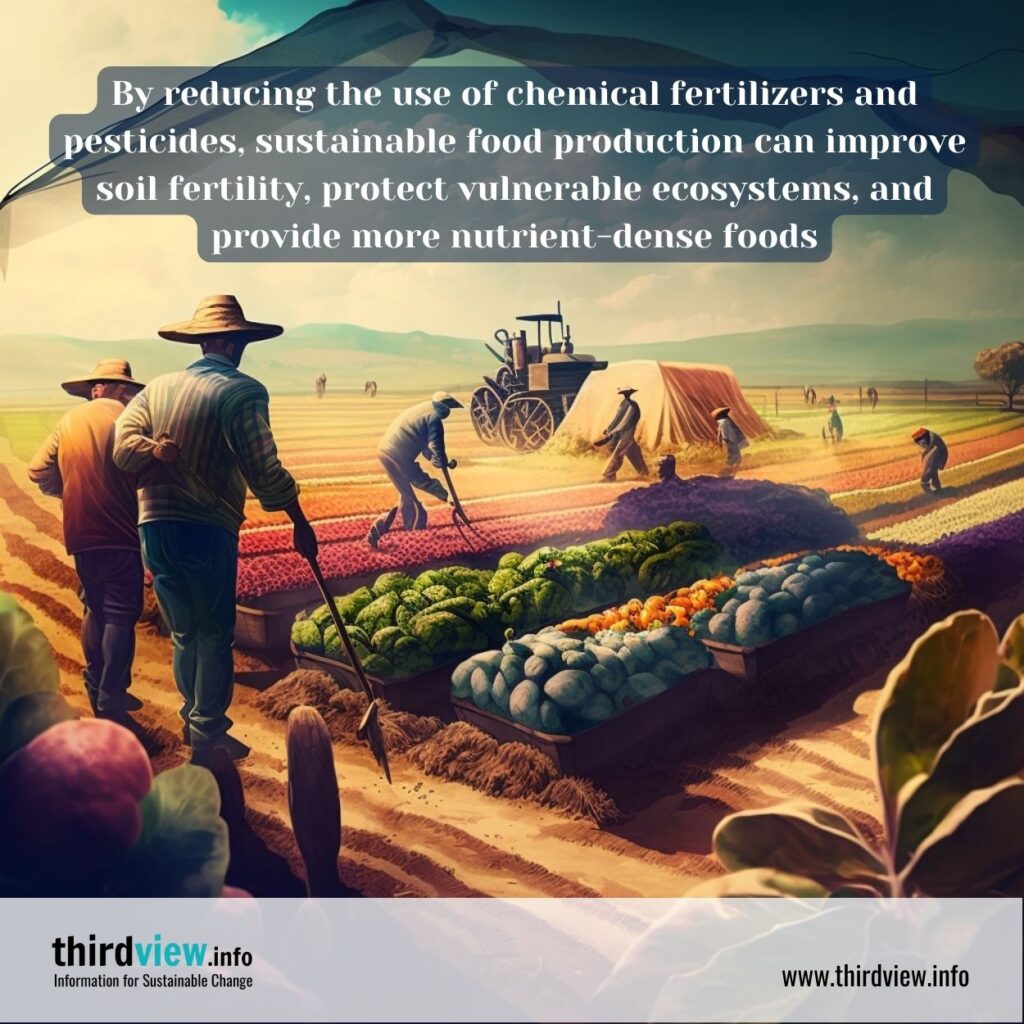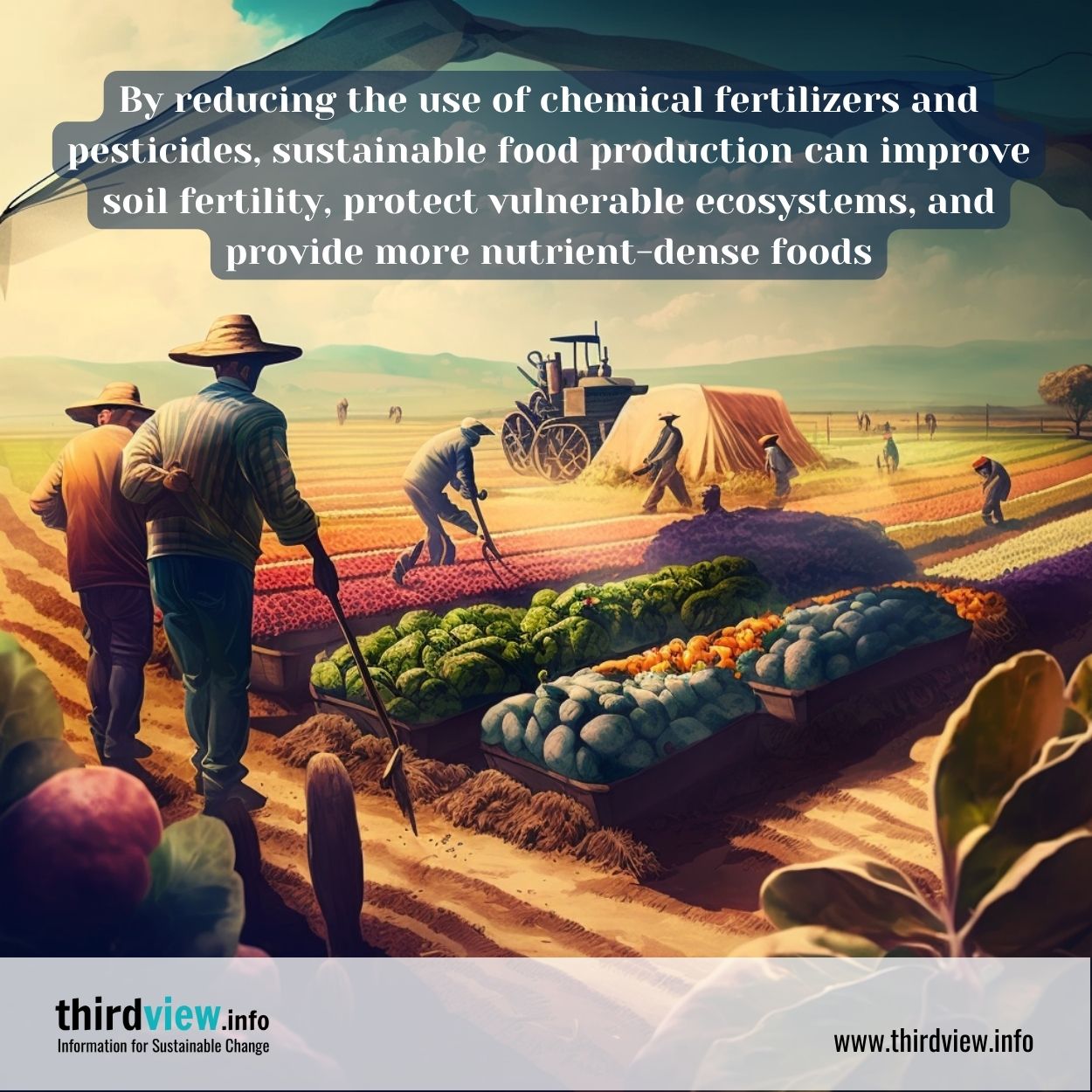Sustainable food production plays an important role in achieving global health objectives. We are now living in a world where the effects of climate change can be seen in our day-to-day lives, from droughts to floods to extreme temperatures. In this ever-changing environment, it is important for us to ensure that we are producing food sustainably so that everyone has access to nutritious food without impacting our environment negatively. Let’s take a look at how sustainable food production can help us reach global health objectives.
The Benefits of Sustainable Food Production
Sustainable food production is beneficial for both the environment and our health. By using methods like crop rotation, integrated pest management and organic farming, we will be able to reduce the amount of chemical fertilizers and pesticides used on crops as well as increase soil fertility. This means not only better-tasting produce but also more nutrient-dense foods. Additionally, by reducing pollutants in the air and water, sustainable food production can help protect vulnerable ecosystems like coral reefs, rivers and lakes from damage due to chemical runoff.
The Health Benefits of Sustainable Food Production
In addition to protecting our environment from damage due to chemical runoff, sustainable food production can also have positive health benefits for people around the world. By increasing access to nutritious foods like fruits and vegetables through sustainable farming practices, people will be able to get more vitamins and minerals from their meals which will improve their overall health. Furthermore, reducing the use of synthetic fertilizers and pesticides reduces potential exposure for people who work on farms or live near them which helps protect them from any potential negative impacts these chemicals may have on their health.
The Role of Government Policy in Promoting Sustainable Food Production
Government policy has an important role to play when it comes to promoting sustainable food production around the world. Governments need to create policies that incentivize farmers to adopt sustainable farming practices such as providing subsidies for organic farming or incentivizing farmers who use integrated pest management practices over traditional chemical-based ones. Additionally, governments should ensure that there is adequate infrastructure in place so that farmers have access to education about best practices for sustainable farming as well as access to materials such as compost or cover crops needed for the successful implementation of these practices.
Sustainable food production plays an important role in achieving global health objectives by protecting vulnerable ecosystems from pollution while also providing people with access to nutritious foods. Governments have an important role to play when it comes to promoting sustainable food production by creating policies that incentivize farmers and provide them with the resources needed for the successful implementation of these practices. By working together towards a common goal—sustainable agriculture—we can ensure a healthier future for generations.


